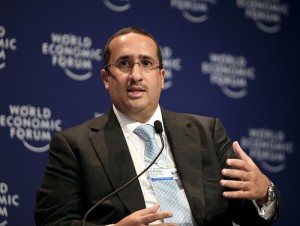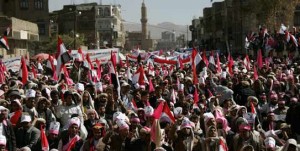UNCLAS KUWAIT 000624
SIPDIS
CODEL
SIPDIS
E.O. 12958: N/A
TAGS: OREP AMGT ASEC AFIN GM IZ IC KU COUNTRY
CLEARANCE
SUBJECT: KUWAIT GRANTS COUNTRY CLEARANCE FOR CODEL BOND
(MAY 3-7)
REF: State 055416
¶1. Embassy Kuwait welcomes and grants country clearance for
CODEL Bond to travel to post o/a May 4-6, 2007.
¶2. This clearance is not/not valid for entry into Iraq; you
must apply for Iraq clearance through Embassy Baghdad.
¶3. Visit Officer: An Embassy visit officer and a
driver/expeditor will meet and assist you at the airport.
Embassy point of contact is:
Carri Mowry, ISU Coordinator
Office- (965) 259-1419
Cell- (965)973-9854
Fax- (965) 259-1190
Unclass e-mail: [email protected]
SIPDIS
¶4. Lodging: Rooms have been reserved at the Crowne Plaza
Hotel for May 4, 2007. The hotel telephone number is (965)
474-2000 and the fax number is (965)473-2020. The single
room rate at the hotel is approximately USD 291.00 per
night, which includes breakfast. The hotel accepts major
credit cards and is within the per diem rate. The daily
per diem rate for Kuwait is USD 291.00 for lodging, plus a
meal and incidental expense (M&IE) allowance of USD 105.00
for a total of USD 396.00.
¶5. Following is postQs standard guidance for visitors to
Kuwait:
a. Entry Requirements: Kuwait now issues single-entry visas
to American citizens on arrival, upon presentation of a
valid passport. There is a processing fee of three (3)
Kuwaiti Dinar (KD 3.000, or USD 12.00) for each visa
issued. The fee may be paid either in KD or USD. Post
strongly advises travelers to carry some documentation on
the purpose of their visit. Passengers arriving on other
than commercial flights should anticipate extra delays,
because immigration services are not available on the
military side of the airfield and passports have to be
carried to a different location at the airport for
processing. Airport visas are valid for 90 days after
arrival; anyone staying beyond this period must obtain an
extension, which should be requested 2 weeks prior to visa
expiration. Anyone departing Kuwait who has overstayed the
visa will be charged a fine of KD 10.000 (USD 35.00) per
day at the airport. All travelers planning to visit Iraq
should make sure that they obtain the required exit/entry
stamps for each transit through Kuwait, and be aware that
they will need to obtain a new Kuwaiti visa upon return,
even after a daytrip to Baghdad. Failure to do so can
result in heavy fines. If possible, travelers should try
to obtain a multiple-entry visa before arriving in Kuwait.
b. Visitors are reminded that the importation of alcohol,
pork products, personal firearms, and any
suggestive/pornographic materials (videotapes, magazines or
books) is strictly prohibited by Kuwaiti law. Kuwait is
still clearing mines and munitions. Visitors must remain on
major paved roads when traveling in Kuwait. Travel north of
Jahra toward the Iraqi-Kuwaiti border is not authorized
without approval from the embassy and an appropriate
escort.
c. Embassy KuwaitQs normal workweek is Saturday through
Wednesday, and office hours are from 8:00 a.m. to 4:30 p.m.
The time difference with the East Coast of the United
States is EDT plus seven hours. The embassy switchboard
number is (965) 259-1001, and the IVG number is 4950000.
The after-hours number which rings at Marine Guard Post One
is (965) 538-2098. The mission duty officer can be reached
through the embassy switchboard, Post One or by cell phone
at (965) 967-7265. The embassy pouch address is 6200 Kuwait
Place, Dulles, VA 20189-6200.
d. Threat Assessment: Kuwait is a high-threat post and the
military threatcon is currently Charlie. We have increased
security precautions at official U.S. installations in
Kuwait and recommend that all Americans in Kuwait remain
alert to their surroundings and review their personal
security practices.
e. Health Advisory for Kuwait: April through October is the
hot season in Kuwait. Temperatures reach 120-140 degrees F
in summer. Caution should be taken to prevent dehydration
and heat exhaustion by 1) drinking plenty of fluids and
2) staying indoors, especially during peak temperature
hours of noon to 3:00 p.m. (1200-1500). Low humidity
coupled with high temperatures creates excessive moisture
loss from evaporation. It is necessary to drink 2-4 quarts
of water daily to prevent dehydration. Visitors from
November to March can expect cold winds and, at times,
heavy rains. Light winter clothing is suitable for Kuwait
during these months. At this time, allergies and colds are
more common, and visitors to the area are advised to bring
over-the-counter medications, such as Tylenol, Ibuprofen
and cough medicine, with them for self-treatment.
f. Money: Credit cards are widely accepted at hotels,
restaurants and other establishments throughout Kuwait and
ATM machines are also readily available. For travelers on
official orders, the Commercial Bank of Kuwait can provide
accommodation services (cashing a personal check drawn on a
U.S. bank into local currency) up to a maximum of USD
300.00 per day from noon to 2:00 p.m., Saturday through
Wednesday. At the current rate of exchange, one Kuwaiti
Dinar (KD) is equivalent to approximately USD 3.50.
g. CAA Access: Visitors who need unescorted access into
secure areas of the mission must slug cables to the
attention of the RSO, and include the level of their
clearance. The cable should include the visitorQs Social
Security Number, and the name of the agency granting the
clearance. Cables should include the ASEC tag to ensure
distribution to the RSO office and the Marine Security
guard at Post One.
h. Computer and Electronics Usage: Sensitive military
information has been discovered recently on business center
computers at local hotels in Kuwait City. All U.S.
Government personnel and contractors must remember that it
is their responsibility to observe good computer and
information security practices. Information processed on
computers in hotel business centers, through email
correspondence or document creation, is highly exploitable.
Public computers located in hotel business centers,
internet cafes, airport lounges, etc. should never be used
to process, store or disseminate sensitive information.
Compromise of sensitive government or military information
can result in serious damage to national security.
Compromises of sensitive personal data can result in
significant personal and financial hardship. Random checks
are conducted by Embassy personnel on public PCQs.
Breaches on COMPUSEC will result in the violator receiving
security infractions and/or security violations.
Interagency security standards prohibit the introduction or
use of non-USG owned computer hardware and software at all
USG diplomatic facilities. Cell phones, palm pilots, radios
and other convenience electronics are prohibited in all
secure areas of the mission.
i. Photography: Tourist photography is encouraged in
Kuwait. However, it is strictly forbidden to photograph
public buildings, economic infrastructure, or military and
other security-related facilities and personnel.
Confiscation of film and camera and even arrest may result
from doing so. A good rule of thumb: If there is any
doubt as to whether a photograph should be taken, donQt
take it.
j. Action Request: Each visitor, regardless of length of
stay, must bring or forward fiscal data to pay for direct
costs of the visit. Each agency, organization or visiting
delegation will be charged for the actual costs attributed
to their visit. Direct charge costs include, but are not
limited to: American and LES staff overtime (e.g.,
expeditor, accommodation exchange, representational event
support), field travel, lodging and meals and incidental
expenses (M&IE) by embassy employees, vehicle rentals,
long-distance telephone calls, equipment rentals, office
supplies and all other costs that are directly attributable
to the visit. If fiscal data on a travelerQs authorization
is to be used for this purpose, this information must be
spelled out in the travel orders and sufficient funding
provided to meet these expenses. In addition, for TDYers
over thirty (30) days, there will be a charge for ICASS
support services. If your sponsoring agency is not signed
up for ICASS services at post, please be prepared to sign
an ICASS Memorandum of Understanding (MOU) for ICASS
support services upon arrival. The agency should provide
post with written communication, generated by the
travelerQs headquarters, that confirms the agency will pay
ICASS charges for the TDYer, provide the agency ICASS
billing code for the TDY support to be provided, and
authorize the traveler to sign the ICASS invoice generated
by the TDY module. When travel is urgent, TDYers should
bring this document with them to ensure there are no
interruptions in the provision of services. Post will not
provide any services to a TDYer staying in excess of 30
days without having received this documentation prior to
day 31 of the TDY.
k. Visit KuwaitQs Classified Website at
http://www.state.sgov.gov/p/nea/kuwait/
¶6. This cable was last updated on October 30, 2006.
LeBaron
























